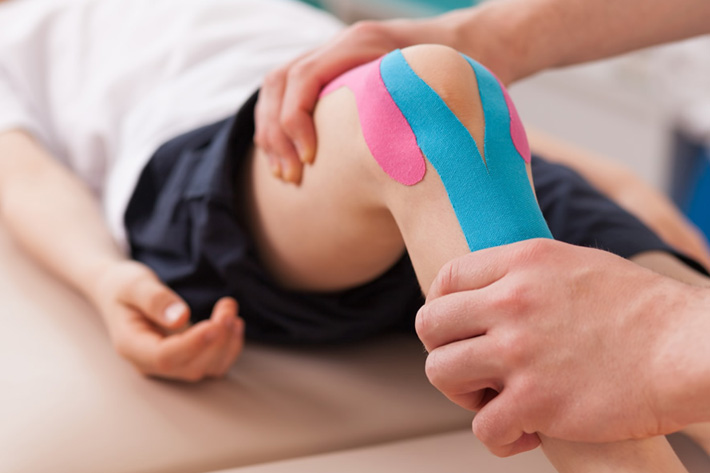Knee surgery can feel like a daunting milestone, but it often marks the beginning of a journey towards renewed mobility and comfort. Whether it’s a total knee replacement or a less invasive procedure, the recovery process is just as important as the surgery itself. It’s a time to rebuild strength, restore function, and embrace healthy habits that will support your long-term well-being. So, how can you navigate this crucial phase effectively? Let’s explore some practical steps to help you get back on your feet.
Ready to reclaim your mobility? At Orthocare, we’re here to guide you every step of the way. Reach out to us today to learn more.
Setting the Stage for Recovery
Recovering from knee surgery isn’t just about healing—it’s about taking proactive steps to rebuild your strength and confidence. Your recovery plan will likely include a combination of physical therapy, home care, and lifestyle adjustments. Here’s what to keep in mind:
1. Follow Your Surgeon’s Instructions
Your surgeon’s post-operative guidelines are designed to ensure optimal healing. These instructions might include:
- Managing pain and swelling with prescribed medications and ice packs.
- Keeping the surgical area clean and dry to prevent infection.
- Attending follow-up appointments to monitor progress.
Adhering to these recommendations is crucial for avoiding complications and setting the foundation for a successful recovery.
2. Prioritise Physical Therapy
Physical therapy plays a vital role in restoring mobility and strength after knee surgery. Your physiotherapist will create a personalised programme tailored to your needs, which may include:
- Gentle range-of-motion exercises to prevent stiffness.
- Strength-building activities to support the muscles around your knee.
- Techniques to improve balance and walking mechanics.
Consistency is key—attend all therapy sessions and practise exercises at home as instructed.
Building Strength and Mobility at Home
Once you’ve been discharged, your home environment becomes your primary recovery space. Here are some tips to create a supportive setting:
1. Organise Your Space
Arrange your living area to minimise strain on your knee. Consider:
- Keeping essential items within easy reach.
- Using a sturdy chair with armrests for support.
- Installing grab bars or handrails in key areas, like the bathroom.
2. Stay Active Within Limits
While rest is important, prolonged inactivity can lead to stiffness and slow your recovery. Gradually increase your activity level by:
- Taking short, frequent walks around your home.
- Incorporating light stretching exercises.
- Avoiding high-impact activities that might strain your knee.
3. Adopt a Healthy Diet
Nutrition plays a significant role in healing. Focus on foods that promote recovery, such as:
- Protein-rich options like lean meats, beans, and eggs to support tissue repair.
- Fruits and vegetables high in vitamins and antioxidants to reduce inflammation.
- Calcium-rich foods like dairy products and leafy greens to strengthen bones.
Overcoming Common Challenges
Recovering from knee surgery comes with its share of challenges, but being prepared can make all the difference. Here’s how to tackle some common obstacles:
1. Managing Pain
Pain is a natural part of recovery but should never feel overwhelming. Talk to your doctor about effective pain management options, including medications, ice therapy, and relaxation techniques.
2. Staying Motivated
Progress might feel slow at times, but every small step matters. Celebrate milestones like increased flexibility or the ability to climb stairs. Surround yourself with a supportive network of family and friends who can encourage you along the way.
3. Avoiding Setbacks
Pushing yourself too hard can hinder recovery. Listen to your body and avoid activities that cause pain or discomfort. Always consult your healthcare provider before making significant changes to your routine.
When to Seek Expert Support
While most people recover smoothly, some may experience issues that require medical attention. Contact your healthcare provider if you notice:
- Persistent pain or swelling that doesn’t improve.
- Signs of infection, such as redness, warmth, or discharge around the incision.
- Difficulty bearing weight on the affected leg.
Prompt intervention can address these concerns and keep your recovery on track.
Embracing a Brighter Future
Recovering from knee surgery is a journey that requires patience, dedication, and the right support. By following your recovery plan and making thoughtful lifestyle adjustments, you can look forward to improved mobility and a better quality of life.
Are you on the path to recovery after knee surgery? At Orthocare, we specialise in personalised care to help you regain strength and confidence. Get in touch with us today to learn how we can support you on your journey.




